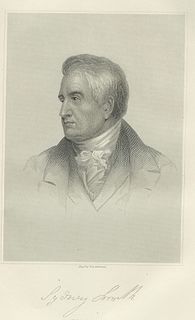Цитата Джеффа Малгана
Люди стремятся вернуться к элементарным моральным добродетелям, таким как честность и приверженность. Мы не доверяем людям, у которых нет центрирования ценностей. Например, мы очень уважаем бизнесменов, если они проявляют эти достоинства, даже если мы не всегда согласны с людьми.
Связанные цитаты
Сила, Мужество, Мастерство и Честь — главные добродетели мужчин во всем мире. Это фундаментальные добродетели человека, потому что без них невозможны никакие «высшие» добродетели. Нужно быть живым, чтобы философствовать. Вы можете добавить к этим добродетелям и создать правила и моральные кодексы, чтобы управлять ими, но если вы полностью уберете их из уравнения, вы не просто оставите позади добродетели, присущие только людям, вы откажетесь от добродетелей, которые делают цивилизацию возможный.
Люди с чувством собственного достоинства проявляют определенную жесткость, своего рода моральный нерв; они обнаруживают то, что когда-то называлось «характером», качество, которое, хотя и признается абстрактно, иногда уступает место другим, более быстро подлежащим обсуждению добродетелям... характер — готовность взять на себя ответственность за собственную жизнь — есть источник, из которого проистекает самоуважение.
Вопреки распространенному мнению, христиане не милые вежливые люди, которые никогда не сердятся друг на друга. Это не добродетели Божьего народа. Нашими добродетелями являются правдивость, доброта, прощение и, да, даже гнев — если только гнев является частью истинной любви, — благодаря которой мы приближаемся друг к другу и к Богу, Который показал нам, как это делается. .
Всеобъемлющая доктрина, будь то религиозная или светская, стремится охватить всю жизнь. Я имею в виду, если это религиозная доктрина, она говорит о нашем отношении к Богу и вселенной; в нем упорядочиваются все добродетели, не только политические, но и нравственные, включая добродетели личной жизни и все остальное. С философской точки зрения мы можем чувствовать, что она на самом деле не охватывает все, но стремится охватить все, и светская доктрина тоже.
Это время, когда многие принципиальные добродетели подвергаются испытанию. Мы все еще верим в правду? Мы все еще верим в эмпатию? Мы все еще верим в защиту самых слабых среди нас? Это вопросы «да» или «нет», но все средства коммуникации связаны с этими добродетелями, и вы не можете отказаться от этих добродетелей, стремясь к ним.
Гениальность американской культуры и ее целостность проистекают из верности свету. Мы говорим, что это просто как день. Счастлив, когда день длинный. Рано ложиться, рано вставать. Американские добродетели — добродетели дневного света: честность, порядочность, прямолинейность. Мы говорим «да», когда имеем в виду «да», и «нет», когда имеем в виду «нет», а все остальное исходит от лукавого. Америка предполагает невиновность и даже право на счастье.
[Бенджамин Франклин] определил тринадцать добродетелей, которые он хотел развивать, — воздержание, молчание, порядок, решимость, бережливость, трудолюбие, искренность, справедливость, умеренность, чистоту, спокойствие, целомудрие и смирение — и составил таблицу с этими добродетелями, нанесенными на карту. дни недели. Каждый день Франклин оценивал себя по тому, соблюдал ли он эти тринадцать добродетелей.



































